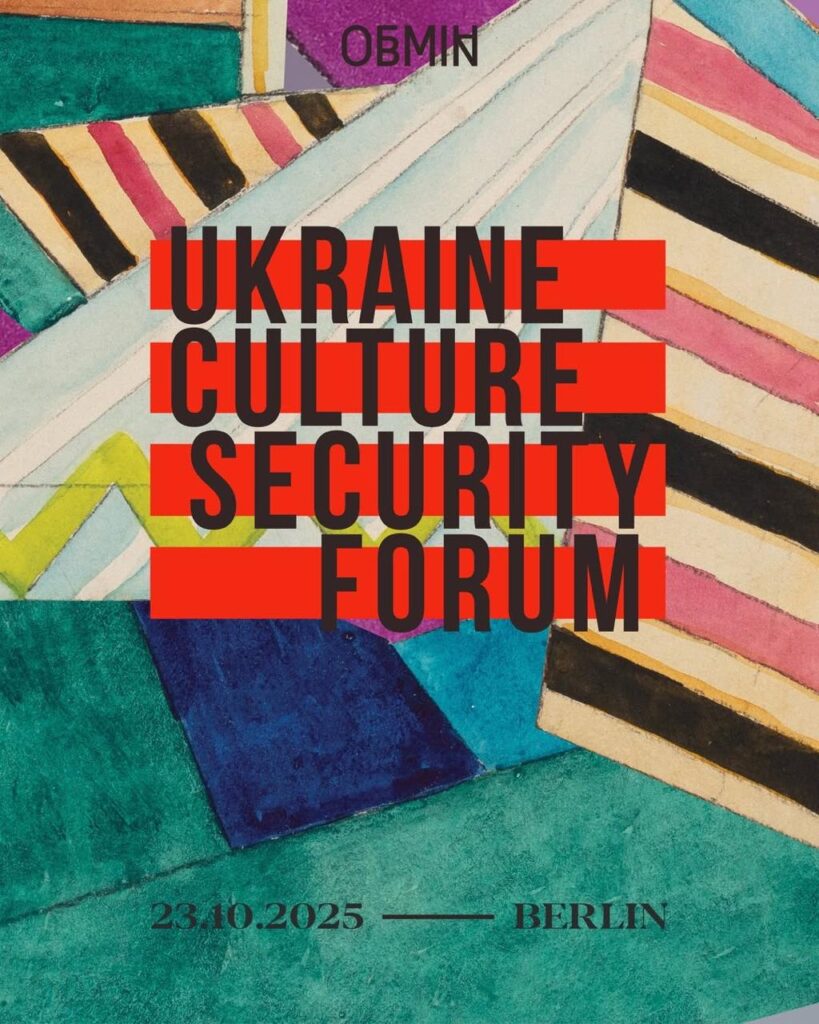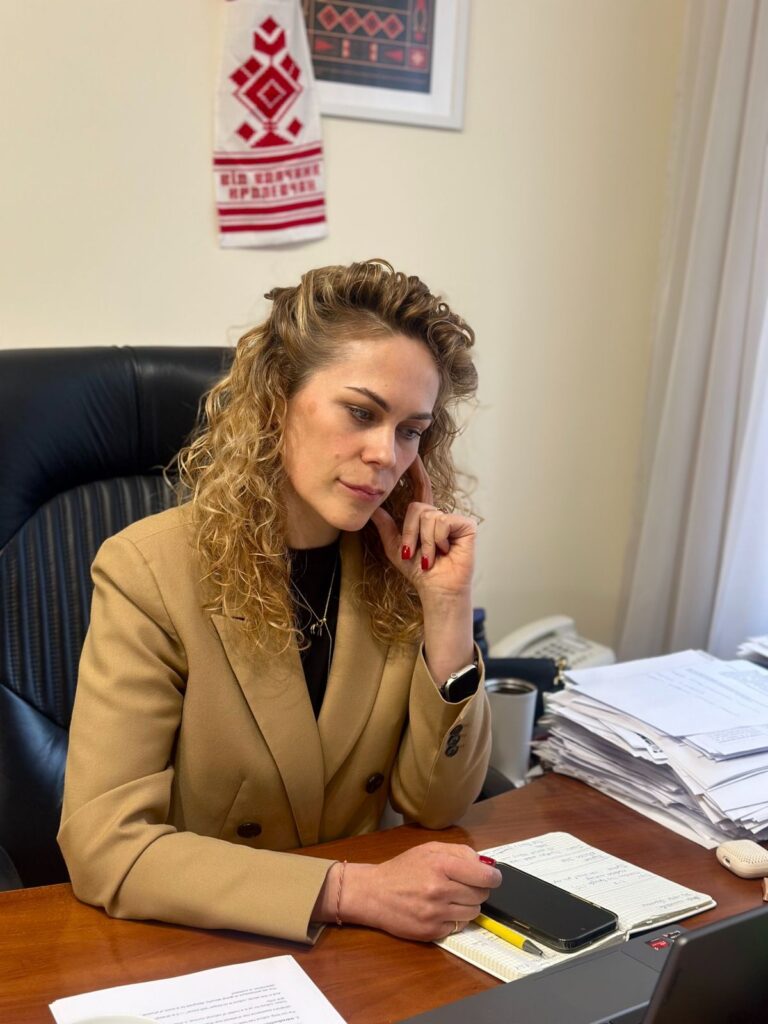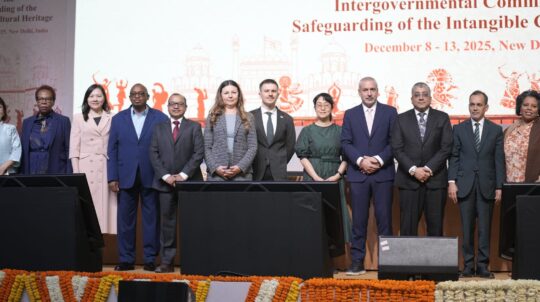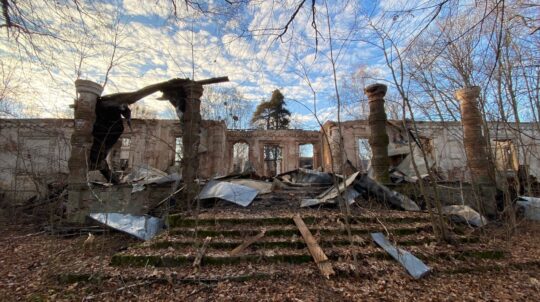On October 22, the Ukraine Cultural Security Forum opened in Berlin — a major international event that brought together representatives of Ukrainian and European institutions, government officials, experts, and cultural leaders for an open dialogue on the role of culture in preserving identity, strengthening social resilience, and countering aggression. As part of the Forum, a roundtable discussion was held on culture and cultural heritage of Ukraine: challenges, opportunities, and joint efforts.

In his opening remarks, Stefan Ressel, Deputy Director General for Culture and Society at Germany’s Federal Foreign Office, emphasized that Russia is waging a deliberate war against Ukrainian culture, destroying not only heritage sites but the very essence of national identity.
Jan Tombinski, Ambassador of Poland to Germany, drew attention to Poland’s efforts to safeguard Ukrainian cultural assets temporarily and acknowledged the contribution of Polish museums in supporting Ukrainian professionals and advancing exchange programs.

A keynote address was delivered by Anastasia Bondar, Deputy Minister of Culture and Strategic Communications of Ukraine for Digital Development, Digital Transformations, and Digitalization. In her speech, she highlighted culture as a strategic resource in wartime, stressing that for Ukraine it is no longer a matter of “soft power,” but of national survival:
“For too long, culture has been perceived as a form of soft power. The Ukrainian experience has shattered that illusion. Today, culture is about the survival and identity of the nation. It shapes our resilience and unity. In this sense, culture becomes a strategic force of security,”
— said Anastasia Bondar.
She also underlined the need to rethink the architecture of global security — one that must take into account not only military but also cultural dimensions. Special attention was paid to the role of museums as spaces for critical thinking, resistance to disinformation, and preservation of truth, as well as to the ongoing process of decolonizing Ukraine’s cultural narrative.
Among the practical initiatives presented by Bondar were the launch of the Ukrainian Cultural Heritage Fund, created in partnership with the ALIPH Foundation, to be officially introduced in November during the meeting of Ministers of Culture in Denmark, and projects aimed at integrating elements of intangible cultural heritage into educational processes in both Ukrainian and European schools.
During the open discussion, participants explored key directions for international cooperation, ways to increase global interest in Ukrainian culture, and the role of cultural security as a component of European policy. Concrete proposals were voiced regarding the support of local cultural institutions, the development of partnerships, youth engagement, and strengthening the professional community.
The Forum demonstrated that Ukraine’s experience represents not only the protection of heritage but also an example of cultural resilience in wartime. Participants unanimously emphasized that cultural security must become an integral part of the global security system, and that investment in culture is a strategic response to contemporary challenges.
The event was organized by Fundacja OBMIN with the support of the Ministry of Culture and Strategic Communications of Ukraine, the Polish Ministry of Foreign Affairs, the Federal Foreign Office of Germany, the Embassy of France, and a number of international partners.

